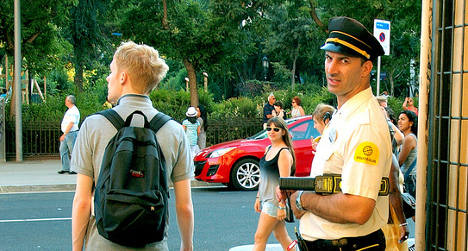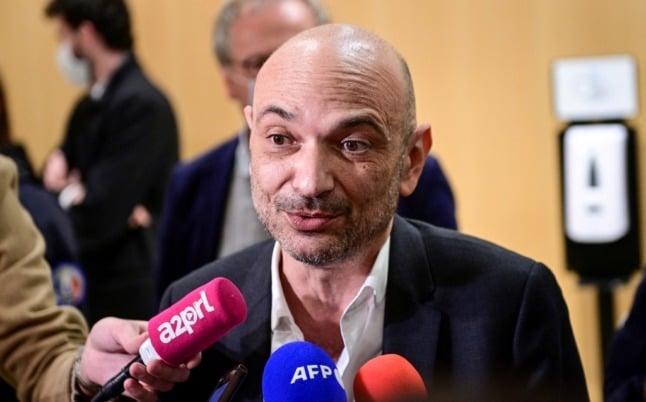Spain's congressional interior committee approved a bill on Tuesday which would grant authorized private security personnel greater 'policing' powers than ever before.
The bill, which will now have to be approved in Spain’s Senate, would allow security guards to detain and identify suspects at public events and at crime ‘hotspots’ like ATM machines.
It will also permit private security personnel to go after "delinquents caught in the act of committing a crime even in cases where it has nothing to do with the people or goods that they are watching over and protecting."
Spain’s ruling conservative Popular Party has backed the new legislation along with Catalan and Basque nationalist parties CIU and PNV.
Their claim is that the current law relating to private security in public places is “excessively rigid and has made more difficult or impeded the necessary authorization of services to the benefit of the public.”
Spain's socialist PSOE party and left-wing IU are vehemently against the move.
In a statement released on Wednesday, PSOE referred to the private security bill as “another attack by the government on Spain’s welfare state” and congratulated private security companies for the money they are likely to make from the move.
Izquierda Unida told The Local the new bill was part of the government’s ongoing drive towards privatization of the State and its structures.
Asked whether the plans were a cost-cutting measure, IU spokesperson Mariano Asenjo said: "Normally, public services which get privatized end up being much more expensive and lower their quality".
"In the end, it’s all about making more and more cuts to public services and weakening them so that you have a perfect excuse to privatize them."
A spokesperson for Spain’s National Society of Lawyers told The Local "the bill will further decrease Spaniards' civil rights.
"It should only be public authorities carrying out arrests so that arrests and complaints can be processed through the appropriate legal channels."
The move comes in the wake of the government’s highly criticized Citizen Security Law, which will see Spaniards slapped with hefty fines for everything from carrying out unauthorized protests to disrupting traffic by playing football in the street.
Don't miss stories about Spain, join us on Facebook and Twitter.



 Please whitelist us to continue reading.
Please whitelist us to continue reading.
Member comments